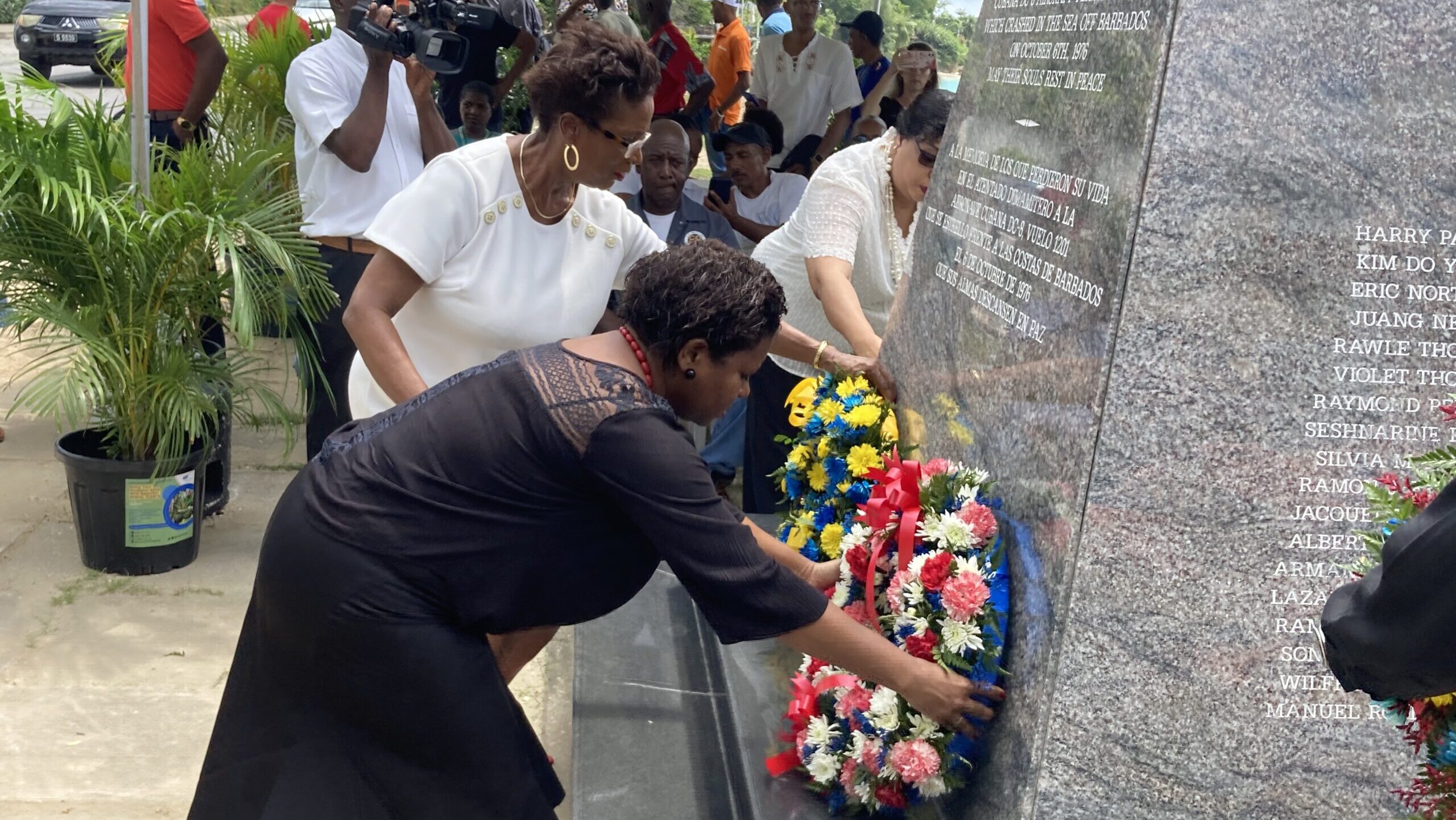On the 48th anniversary of the Cubana Airlines bombing off the coast of Barbados, Barbados’ Ambassador to CARICOM David Comissiong called for justice, solidarity, and global peace.
The commemoration, held at the Cubana Airlines monument in Paynes Bay, St James, marked one of the most tragic events in Caribbean history—an act of terrorism that claimed the lives of 73 people on October 6, 1976. The passengers on board Cubana Flight CU-455, many of whom were young medical students, were en route from Guyana to Cuba when the plane was destroyed mid-flight by two bombs planted by anti-Castro terrorists.
Comissiong, who described the attack as “our Caribbean 9-11, some 25 years before the events of September 11, 2001, called for unity and solidarity among Caribbean nations in the fight against terrorism.
He noted that the attack was a pivotal moment that influenced CARICOM’s stance on foreign policy, leading to the adoption of a key principle—designating the Caribbean as a “zone of peace.”
“We use this solemn and sacred occasion to highlight our solidarity with each other and to send a strong message globally that we must strive together towards a world where mutual respect and peace dominate and the seeds of hate, intolerance, and terrorism are eliminated,” the ambassador urged.
He condemned acts of terrorism and state-sponsored violence around the world, drawing attention to the suffering of Palestinians in Gaza and the West Bank. Comissiong linked their situation to the Cubana bombing, noting the commonality in the targeting of innocent civilians.
“What then, brothers and sisters, other than state terrorism, is the extreme and wanton violence that has been inflicted by the Israeli Defence Force against the Palestinian civilian population of the Gaza Strip and the West Bank for several decades now?” he asked.
Comissiong stressed that the international community, particularly institutions like the United Nations, must act to stop the violence and terrorism occurring in Gaza, Sudan, the Democratic Republic of Congo, and other conflict zones. He asserted that it would be hypocritical to focus solely on distant episodes of terrorism without also addressing the ongoing injustices closer to home.
He also highlighted Cuba’s longstanding history of being targeted by terrorism. Since the Cuban Revolution in 1959, the country has been the victim of over 700 acts of terrorism, in which thousands of Cubans have been killed.
Beyond the physical acts of violence, Comissiong pointed to the US trade embargo against Cuba, which has been in place since 1962, as a form of economic terrorism. He described the blockade as an act of “economic violence against civilians and non-combatants to achieve political aims.” According to him, the Cuban people continue to suffer tremendously under the weight of these sanctions.




